- Home
- Margaret Mahy
Twenty-Four Hours
Twenty-Four Hours Read online
TWENTY-FOUR HOURS
MARGARET MAHY
Contents
Cover
Title Page
Dedication
Part One
5.10 pm – Friday
5.20 pm – Friday
5.50 pm – Friday
6.30 pm – Friday
6.55 pm – Friday
7.30 pm – Friday
8.10 pm – Friday
8.25 pm – Friday
9.30 pm – Friday
Time Stops
Part Two
9.00 am – Saturday
10.00 am – Saturday
10.20 am – Saturday
10.30 am – Saturday
10.40 am – Saturday
11.10 am – Saturday
11.40 am – Saturday
12.40 pm – Saturday
1.10 pm – Saturday
3.10 pm – Saturday
Part Three
4.00 pm – Saturday
Epilogue
About the Author
Also by the Author
Copyright
About the Publisher
Dedication
TO CRAIG
In celebration of the number-one hair-cut.
MM
PART ONE
5.10 pm – Friday
Home. Home from school. Holidays. And here he was – out on the town, but on his own. As he walked through the early evening, bright with midsummer light, Ellis saw the city centre glowing like a far-off stage. But, although the sunlight was finding its way so confidently between hotels and banks, shops and offices, the city was threatened by a storm. To the north, between glassy office buildings, he could see bruised clouds, polished by a lurid light, rolling across the plain towards the town.
Most of the other people in the street were going in the same direction as Ellis, probably making for the cinema complex that dominated the eastern end of the city centre. He looked with interest at the few faces coming towards him, half-hoping to see someone he recognised. However, as yet, he had not seen a single person he knew.
I can always go to a film, he thought, and patted his back pocket as if the money there was a good-luck charm.
The traffic lights changed. Glancing to the left as he crossed the street, Ellis saw the city council had installed new street lamps since he had last walked that way. Retreating, like precisely spaced blooms in a park garden, they rose on long green stems which curved elegantly at the top, then blossomed into hoods of deep crimson. Foley Street, announced brass letters on a black background. At the far end of the street he saw the old library he had visited regularly as a child, bracing its stone shoulders against a constricting cage of platforms, steps and orange-coloured piping. Wide dormer windows looked towards Ellis from under deep, dipping lids, tiled with grey slate. Several streets away, a new library, complete with a computerised issue system and a much-praised information-retrieval programme, would no doubt be working busily. But the old building was still there, transformed into apartments – one of them owned, he suddenly remembered, by country-dwelling friends of his parents. He guessed, looking at the scaffolding, that the company which had bought the old library must be adding a third floor to the original two.
More changes, thought Ellis a little ruefully, although he also wanted the city to surprise him in some way – to put out branches … break into leaf … burst into gigantic laughter.
Free, thought Ellis, and he might have skipped a little if it had not been such a childish thing to do. Well, not quite free. University next year – OK! OK! That was decided. But, after all, the university had a drama society and a proper theatre, so they must need actors. And he would have adventures, moments of revelation, sex, even love. The coming year, he decided, would be a year of transformation. I’m going to be an actor, said the voice in the back of his head. I really am!
“I am going to be an actor,” Simon had also declared last year, casually but quite definitely. And then, later … “Forget acting! I’m into sex these days,” he had said when Ellis, excited by the prospect of the Shakespeare Fantasia planned for the end of the year, had auditioned successfully for the part of Claudio in a scene from Shakespeare’s Measure for Measure. But, only two weeks after saying this, Simon had killed himself. He had, after all, been into something much more dangerous than sex. He had been in love, and love had failed him.
Somewhere behind him in Foley Street a clock struck the quarter-hour with a soft but significant chime. “Now!” that final fading stroke seemed to declaim. “It begins now!” And, as it faded, almost as if its echo had triggered an event in the outside world, Ellis caught sight of himself in a looking-glass, framed by blue tiles, linking two shops. He saw, before he strode past, the long oval of his face smiling out of a halo of curls. Not bad! he thought, glad that the quickly-moving reflection had seemed to belong to someone so much older than seventeen. Yet, almost at once he felt discontented, for he did not want to look quite so wholesome – quite so new.
But now, out of nowhere it seemed, a huge wind came funnelling down the street towards him. Abruptly, the air whirled with leaves and rubbish, some of which danced higher and higher, lifting over the street lights, zigzagging, twisting, before tumbling away across roofs on the opposite side of the road. One piece of screwed-up red paper spun upwards as if it were about to go into orbit. A blackboard, advertising café meals, tumbled towards him like a square wheel, first one corner and then another striking the pavement. Ellis dodged it. The wind punched his face, at the same time stinging him with grit. Angry voices filled his ears, and a gliding figure, apparently lifted by the storm, leaped from the pavement on to a narrow empty strip designated as a bus stop. The skater swung so dangerously close to the line of slow-moving traffic that one or two drivers tooted their horns in outrage, and a passenger lowered his window to shout angrily, “What do you think you’re playing at, you bloody fool?” But the gliding man simply flung out his left arm, in a gesture both graceful and confident, and extended a single, insulting finger.
Another gust of wind tilted advancing pedestrians back on their heels, and the skater, perhaps taking advantage of their uncertainty, jumped from bus-stop space to pavement. Suddenly, Ellis and the skater were face to face.
For the first time that evening Ellis had recognised someone, and was sure that he, too, was recognised. The skater’s expression changed. Sliding past Ellis, he turned into a shop doorway, spun around, and then darted back again. He seemed to move without any effort at all … a young man in an ancient camel-hair coat, both elbows worn through, one of them blackened as if the wearer had casually leaned among red-hot coals.
A name came into Ellis’s head. Jackie, wasn’t it? Jackie Kettle? No! Not quite! A voice from the past spoke softly in his memory. “Funny name, isn’t it? It’s a fair cow.” Jackie Cattle! That was it. Jackie Cattle.
5.20 pm – Friday
“Yay!” Jackie was shouting, circling Ellis. “How’s it going?”
“Jackie!” said Ellis, proud of remembering the name and anxious to reassure its owner. “Oh, well! OK! You know!” He waggled his fingers, vaguely suggesting that things were just what anyone might expect them to be … a bit of this, a bit of that, good and bad mixed.
Raised unnaturally high on his roller blades, Jackie was staring down at Ellis with friendly interest, but Ellis could easily see that something indefinable was going on behind those beaming, blue eyes … some sort of guess was being made. He knew he was being assessed. And now he remembered that, years ago, Jackie Cattle, a confused victim for the most part, touched by some oddity that Ellis had never really defined, had also had moments when he could seem quite sinister.
So he gave a hasty smile – a nod, a shrug – half-offeri
ng to move on. But Jackie smiled back at him – a smile bright with unconvincing innocence, revealing a clownish gap between his two front teeth. He grabbed Ellis’s arm.
“Long time no see, mate!” he shouted, the wind snatching at his words.
“I’ve been away,” Ellis shouted back.
“What? Inside?” Jackie asked with a sort of confused incredulity. “Jail?” Then he flung up his hands in a gesture of apology. “No! Of course not! Not you! Sorry!” All the time his eyes were flitting over Ellis with the attentive curiosity of someone planning to paint a portrait from memory. “So! Where the hell have you been?”
Automatically, Ellis was piecing together a memory portrait of his own. Before he had been sent to St Conan’s he had attended a small state school across the road from his home. Jackie Cattle had also been a pupil there, a boy at once exotic and pathetic, a year ahead of Ellis and old in his class. He must be nineteen by now, thought Ellis. Twenty, perhaps. In some ways he hadn’t changed much. He still had the same round, childish face, the same heavy-lidded eyes, the same sly, sideways smile.
“School!” Ellis yelled into the storm without thinking.
“School!” exclaimed Jackie, bending forward as if he could hardly believe what he was hearing. He sounded much more astonished at the thought of school than he had been at the possibility of jail.
“I’m out now,” said Ellis. “What about you?”
“Cross my heart, you wouldn’t want to know,” said Jackie, pulling a face.
He certainly looked disreputable – had always looked disreputable – and yet, for all that, he spoke with an accent that was almost elegant. His family had been well-to-do, hadn’t they? Adults had exclaimed over the contrast between Jackie and a clever, older sister. Anyhow, the contrast between the tattered camel-hair coat and the smooth way of speaking made Jackie hard to place. Ellis found he was not quite sure how to talk to him.
“Oh, well, see you around!” he said, knowing already that Jackie was not going to let him walk away. And sure enough, Jackie’s grip on his arm tightened a little.
“No! No, wait!” he cried, while his eyes ran over Ellis yet again with that same persistent speculation. “What are you rushing off for? You’re not meeting a girl or anything, are you?”
“No,” said Ellis a little aggressively, because Jackie had sounded so completely certain that Ellis would not be meeting a girl.
Jackie beamed.
“Well, that’s OK then! Let’s mingle! Be part of café society. I’ll buy you a beer.”
Why not? thought Ellis. I might as well find out what’s going on.
“Why not!” he said aloud. “I’ll pay,” he added, remembering the money in his back pocket.
“Even better!” said Jackie fervently. He twitched his battered coat into place as carefully as if it had been freshly cleaned and pressed and there was some reason for looking after it. Then he pointed backwards over his shoulder with his thumb.
“Follow me,” he said, spinning on the spot as he extended his arm, pointing dramatically. They moved off together, Jackie gliding at Ellis’s right shoulder like an escorting angel.
“So! School!” he reminisced. “School!” he repeated as if he were mentioning something so peculiar he couldn’t quite believe in it any more. “And what now? Got a job lined up?”
“I’m going to be an actor,” said Ellis, feeling he could safely practise this announcement on someone like Jackie. It came out well – crisp, assured and unapologetic.
“Crash hot!” said Jackie, though Ellis suspected Jackie would have said the same thing if he had announced that he was planning to be an accountant.
“I only got home last night. I’m just getting used to things again,” Ellis added quickly.
“Hey, you never get used to things,” Jackie said. “Take it from one who knows!” He had one of those faces that flared into life when he smiled. The little gap between his front teeth flashed – a flash of darkness. Ellis tried to imagine a gap-toothed Hamlet. Why not? There weren’t any orthodontists in Shakespeare’s day. For all that, he found he couldn’t quite imagine Hamlet with a gap in his front teeth. “Why did your parents send you away to school?” Jackie asked. “Were they trying to get rid of you, or what?”
“It was my dad’s old school,” said Ellis. “He loved it there, and he thought I would, too.”
“I’d have hated it,” declared Jackie with complete certainty.
“It was all right,” said Ellis.
The wind flung fistfuls of rain in their faces, drops flying towards them like transparent bullets.
“OK! Swing right!” Jackie commanded. “In here.”
A couple of minutes later Ellis was sitting at a table in a café bow window, with an oblique view of the city centre. Because it was so well lit, and yet a little distant, he was teased again by the idea that he was looking on to a stage, and that someone was busily operating a wind machine in the wings.
Jackie slid back from the bar where he had been talking in a familiar way with a barman. He was carrying two short, brown bottles of lager, a glass upended on top of one of them, and a bowl of mixed nuts and potato chips which he passed to Ellis. Then he slumped into his chair and put the bottle to his mouth, sensuously kissing its brown lips. Ellis put the glass to one side and drank from the bottle, too.
“Saves the washing-up,” he said.
Jackie grinned, his grin hyphenated by darkness. “So, let’s just watch the world go by for a minute or two,” he said. “Then, if you like,” he added with a slyness that was not intended to deceive, “we can take off to a party I know about. Well, we can if you’ve got wheels. Bigger wheels than mine, that is,” he added, glancing down at his skates.
“Oh, I see,” Ellis replied with satisfying irony. “You’re not just – you know – being nice!”
“No way, mate!” exclaimed Jackie indignantly. “This is straight-out exploitation. Trust me!”
“Suppose I don’t have a car?” Ellis asked. “What’ll you do? Skate to the party with me running beside you?”
“But you have got a car,” said Jackie. “I took one look at you and I just knew! ‘Now, there’s a man with a car,’ I said to myself, and I was right, wasn’t I?”
He spoke drowsily, almost absent-mindedly. But there was something far from sleepy moving in the eyes behind those heavy lids.
“It’s my mother’s car,” said Ellis. “I’m supposed to be home in …” he looked at his watch “… in about a hour.”
“Did you promise?” asked Jackie.
“Well, I didn’t exactly promise …” said Ellis.
Jackie relaxed. “Thank God,” he said. “You really frightened me then because you’re probably one of those pricks that keep their promises. It would have ruined everything.”
“What I am is the prick with the car,” Ellis reminded him. Jackie laughed and nodded.
“Yeah! Right! Nice one!” he said. “Now – this party! It’s out along the motor way … a country party. I could skate, but it would be easier if you drove me.”
Ellis remembered he had promised himself wild adventures and no apologies. And, after all, he had made his mother no real promises.
“OK, then!” he said.
Immediately, a new ease engulfed Jackie who flopped back in his chair.
“Your turn to tell me,” Ellis went on. “What have you been up to?”
“Oh, about up to here,” said Jackie, leaning sideways in his chair and holding his hand, fingers splayed, about an inch from the ground. “No real job. No self-respect. Mind you, the way I see it, self-respect is the easiest sort of respect to get, isn’t it? Me – I want respect with a bit more challenge to it.” He eased himself upwards in his chair once more as he went on talking. “I make a few dollars here and there, but basically I just fiddle around. I’m a born fiddler.”
“Yeah, I can tell,” said Ellis.
A piece of wastepaper whirled past the window and disappeared into the deepening, summer e
vening. The city was still embraced by a largely tearless storm.
Jackie slapped his hand down hard on the table.
“Five! Four! Three! Two! ONE!” he exclaimed, leaping to his feet and draining the rest of his beer. The movement upwards married into a movement forwards. “Blast-off!” he cried.
Before Ellis’s eyes he become charged with both energy and mischief. Hastily, Ellis drank half his beer and then, remembering he would be the driver, left the rest of it on the table. He followed Jackie into the street and they wove their way, side by side, back to the parking lot where Ellis had left his mother’s car.
“Straight down the Great North Road,” said Jackie, scrambling into the passenger seat. “It’s a sort of barbecue party. Begins – officially, that is – with five o’clock drinks. So, by the time we get there, they mightn’t care who’s turning up. Unless they’ve been rained out.”
“If it’s an inside party they mightn’t let us in,” said Ellis almost hopefully. He wanted the adventure, but felt dubious about gatecrashing a private party.
“Why not?” said Jackie, sounding affronted. “I mean, look at us: clean, smiling! Both respectable guys! Eh?”
Ellis felt certain that Jackie had chosen him not merely because he had a car, but because his curling hair and tidy clothes might persuade someone, somewhere to welcome them in.
5.50 pm – Friday
As they surged on to the motorway, heading north, the suburbs fell away altogether. Moving deeper into the country, Ellis felt a change coming over Jackie Cattle. He had not understood just how tense his companion had been until Jackie shifted in the seat beside him, sighing as he relaxed.
They crossed a long bridge curving over one of the five rivers that braided and divided the plains between city and mountains, and Ellis glimpsed below him threads of water winding, separating, then weaving together again, negotiating wide, flat beds of grey shingle. Gusts of wind beat the river surfaces into angry grey-green ripples ticked with silver.

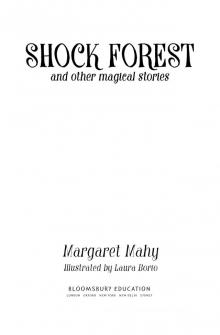 Shock Forest and other magical stories
Shock Forest and other magical stories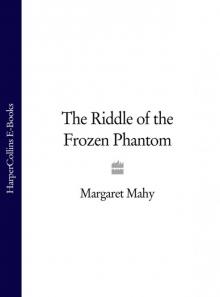 The Riddle of the Frozen Phantom
The Riddle of the Frozen Phantom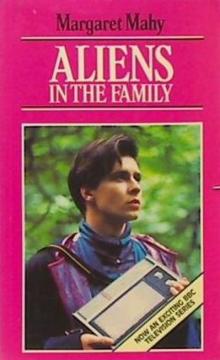 Aliens In The Family
Aliens In The Family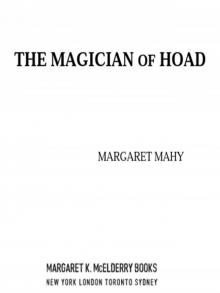 The Magician of Hoad
The Magician of Hoad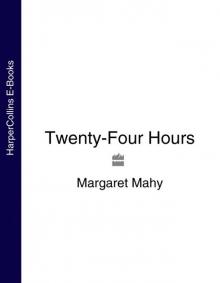 Twenty-Four Hours
Twenty-Four Hours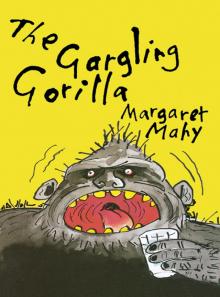 The Gargling Gorilla
The Gargling Gorilla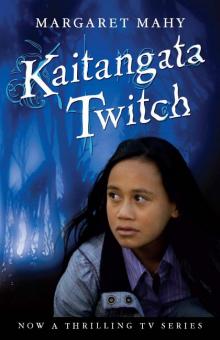 Kaitangata Twitch
Kaitangata Twitch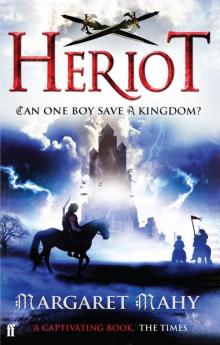 Heriot
Heriot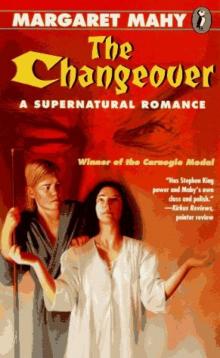 The Changeover
The Changeover